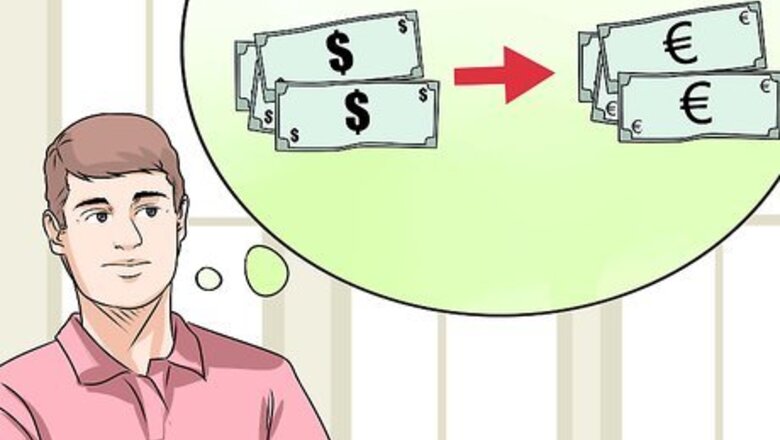
views
Doing the Math Yourself
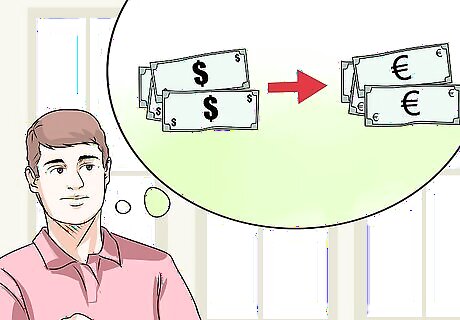
Estimate the amount of money you wish to exchange. Think about how much money you're budgeting for the trip. Or, if you know how much money you'll need in the other country, work backwards and start with the foreign currency.

Look up the exchange rate of the currency to which you wish to convert. You can find this information on a Google search, or on several banking or financial websites. Note that you want to set the currency you have to 1; the value listed next to the currency you're exchanging to is the exchange rate.
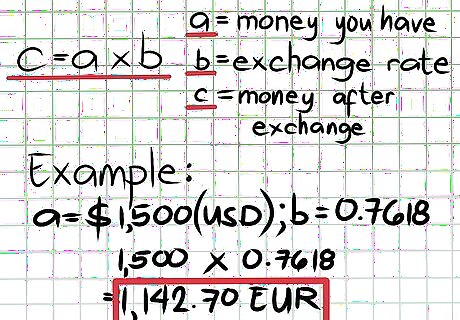
Calculate how much money you'll have after the exchange. Multiply the money you've budgeted by the exchange rate. The answer is how much money you'll have after the exchange. If "a" is the money you have in one currency and "b" is the exchange rate, then "c" is how much money you'll have after the exchange. So a * b = c, and a = c/b. For instance, say you want to convert Euros to US dollars. At the time of this revision, 1 Euro is worth 1.09 US dollar. Your exchange rate is 1.09. If you're planning on taking $1500 Euros with you, you would multiply 1500 by 1.09. The answer, 1632.61, is how much money you'll have in dollars after the exchange. Here's an example of the "work backwards" method. Say that you know you'll need 20,000 Hungarian forints for your trip. You discover that 1 US dollar is equivalent to 226.43 forints. To figure out how many US dollars you would need to save at the current exchange rate, divide 20,000 by 226.43. The answer, 88.33, is how many US dollars you need to exchange.
Using Other Conversion Tools
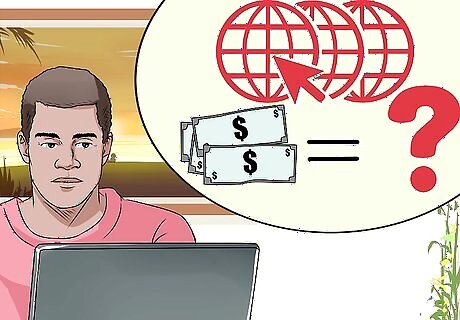
Check for an up-to-date conversion rate online. There are many websites that constantly update their site with the current conversion rates for currencies around the world. These are good places to look for the exchange rate, then use the equation in Step 3 above to calculate currency totals.
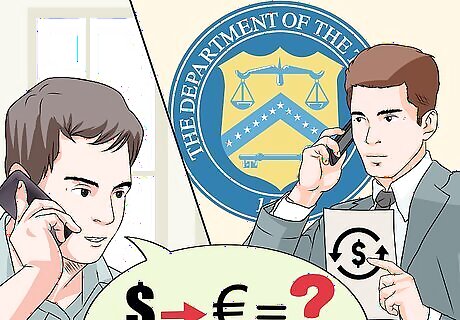
Contact the government for accurate exchange rates. You can contact the Department of Treasury or other governmental agencies to get up-to-date information about exchange rates for converting currency.
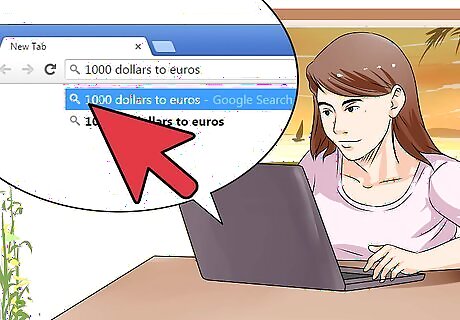
Google the conversion you want to know. Simply type into a Google search bar what conversion you want to make and Google will tell you the answer using their currency converter. For example, if you want to know what the exchange rate for $1,000 US to Euros is, type 1000 dollars to euros in any Google search bar and it will tell you the answer. However, because Google's finance converter does not constantly track and update current currency exchange rates, this information is more of an estimate and should not be relied on as accurate up-to-the-minute data.
Exchanging Currency

Ask your bank. Many banks, especially larger ones like Bank of America or Wells Fargo, keep foreign currency on hand in the branch. You can go to the bank and pick them up directly or order them online. And, even if you are not a customer, these banks will usually allow you to exchange currency for a fee. If your bank's branch does not keep he currency on hand, they can often order it for you. This usually takes about 2-5 business days. Note: Many smaller banks and credit unions are unable to exchange foreign currency.
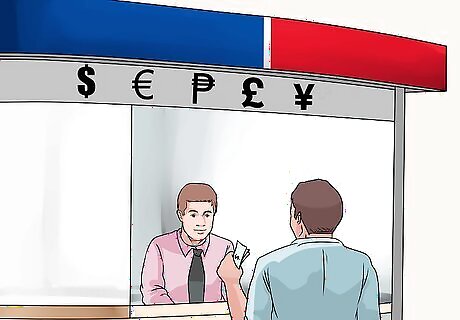
Use a currency exchange service. Most major airports have currency exchange services that use companies like Travelex to help travelers exchange their home country's money when they arrive in a new destination. These services often charge much higher fees than exchanging currency at a bank because they are in prime locations (like airports) where people need local currency quickly.
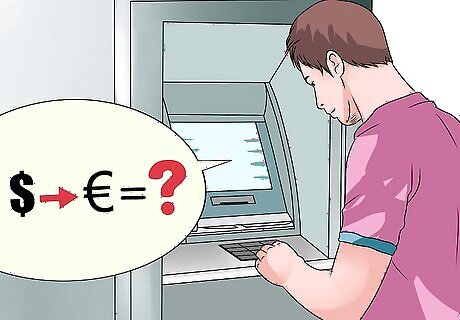
Use an ATM in a foreign country. Sometimes the easiest way to exchange money is to simply use your card at an ATM while you are traveling. Your bank will probably charge you a foreign transaction fee that is a percentage of the entire amount withdrawn (usually 1-3%) in addition to other fees for using another bank's ATM.











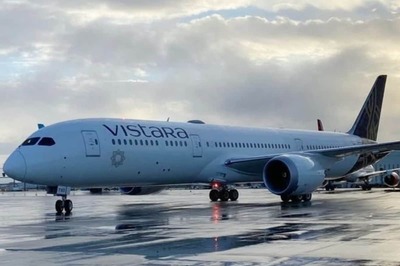
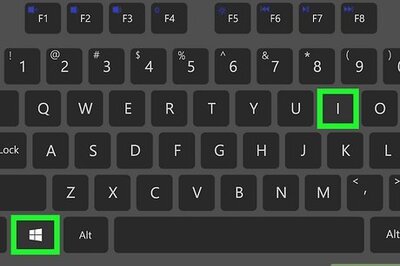





Comments
0 comment